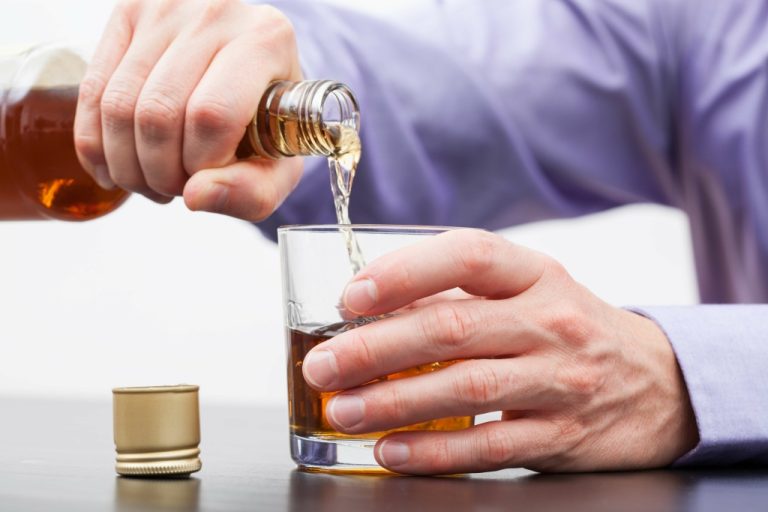1:36nihhatya dhārtarāṣṭrān naḥ kā prītiḥ syāj janārdanapāpam evāśrayed asmān hatvaitān ātatāyinaḥ1:37tasmān nārhā vayaṁ hantuṁ dhārtarāṣṭrān svabāndhavānsvajanaṁ hi kathaṁ hatvā sukhinaḥ syāma mādhava In Śloka 36 and 37, Arjuna
READ MORE
Prolonged and excessive alcohol consumption can impact your brain, causing changes to the neurotransmitter gamma-aminobutyric acid (GABA) receptors. Heavy drinking can lead to a reduction in the sensitivity of your brain to the amount of GABA produced. If you abruptly stop consuming alcohol, your brain may not have enough sensitivity to GABA, which can result in hyper-excitability and withdrawal symptoms.

It can also involve substituting the drink of choice with another drink; for example, a person may taper off hard alcohol with beer. If you or someone you know is experiencing symptoms consistent with DTs, call 911. DTs can be fatal, and a person going through them should have medical support in a hospital or rehab facility. In fact, a relapse can be a valuable learning experience that helps you avoid slipping in the future. A relapse can serve as an opportunity for you to refocus on your larger goals, practice self-forgiveness, and find ways to stay motivated.

It’s important to note that severe alcohol withdrawal symptoms can be life-threatening and may require medical attention. If you or someone you know is experiencing severe withdrawal symptoms, seek immediate medical help. It is highly recommended to consult with a healthcare professional before attempting the cold turkey approach. They can provide guidance, monitor symptoms, and ensure that appropriate support is in place throughout the process. Natural remedies and self-care techniques can also complement the cold http://forum-abkhazia.ru/showthread-t_1454-page_9.html turkey approach to help manage withdrawal symptoms. Because symptoms such as seizures and delirium tremens can be fatal, reducing alcohol consumption can be dangerous for some.
Or maybe it’s a pregnancy that made you realize it’s time to stop drinking. Or maybe you’re just looking to improve your health, wake up hangover-free and give your liver (and your heart and brain) a break. If you’re ready to take the first step towards overcoming your addiction, consider reaching https://www.plaintest.com/infectious/ent out to an alcohol recovery center today.
If you’ve been drinking heavily for a long time and think you might experience withdrawal symptoms, it’s best to talk with a medical professional before you begin a taper. Having a clear plan in place can greatly enhance the success of reducing alcohol consumption. Setting specific, measurable, achievable, relevant, and time-bound (SMART) goals can provide structure and motivation during the weaning process. For example, a SMART goal could be to reduce alcohol consumption by a certain percentage within a specific timeframe. Ria Health offers access to many of these tools, including prescription medications, recovery coaching, and online support groups—all through a HIPAA-compliant smartphone app.
A primary mental health, substance use, and process addiction center offering a continuum of care and holistic healing in the Sonoran Desert for 35 years. Developing a tapering plan is the first step towards breaking free from alcohol dependency. Remember, it’s not about achieving immediate perfection but about making steady progress towards your goal of sobriety. When attempting to understand how to wean yourself off alcohol safely, it’s essential to first comprehend the concept of alcohol withdrawal. Research has shown that professional help improves your ability to overcome an addiction to alcohol or cut back if you have found it difficult.
That said, tapering off alcohol doesn’t completely eliminate withdrawal symptoms. Alcohol withdrawal is dangerous and it’s important to be careful throughout the process. Some people are facing problems with their health or personal lives which require them to quit immediately. http://addons-guru.ru/help/skachat_igru_na_telefon_the_soul_of_darkness_2.html However, for many people with alcohol use disorder, tapering off alcohol is a far better experience than quitting abruptly. If you’ve decided to quit drinking, and tapering seems like the right approach, we’ve got you covered. Here’s how to wean off alcohol—including useful strategies, how to create a tapering schedule, and how to stay safe throughout the process.
Before embarking on the journey to quit drinking alcohol, it is essential to acknowledge the need for change and understand the impact of alcohol addiction. By recognizing the negative consequences of alcohol abuse and the benefits of quitting, individuals can find the motivation and determination to make a positive change in their lives. Tapering off alcohol is generally safer and more effective than quitting cold turkey. The withdrawal symptoms are less severe and dangerous, and the individual is more likely to achieve a lasting sobriety.
The alcohol withdrawal symptom delirium tremens (DT) is estimated to kill up to 5% of those attempting to quit suddenly after chronic usage. This is a staggering number considering that many other drugs do not even have the possibility of lethal withdrawals. For this reason, experts advise that alcohol cessation be monitored safely with steady effort between oneself and a physician. Anyone wanting to stop using alcohol may benefit from tapering if they first consult with their doctor to ensure they are tapering safely. Tapering is a more cost-effective method of stopping alcohol use, especially for those who do not have healthcare insurance or the resources needed to get a professional detox.
No Schedules for this section.
Sapthaham
Date & Time : 17-02-2026 - 23-02-2026 at 6 am
Venue : Bhagavati temple,Kavanadu,Kollam
Contact Person : Unni Radhakrishnan
Contact Number : 9495088062 /9387696549



